Using #if, #endif in Swift (using Xcode) produces errors if it cuts into the flow of an operation. This screenshot says it all:
Does anyone know a solution to make this example work, without repeating the entire code block twice? There can easily be situations where the entire block can be very large.
EDIT: My sample was a bit too simple. Here is a new sample where the "else if" depends on the same define (DEBUG). The "else if" must also be within the #if and #endif. And other samples can be much more complex than this.

